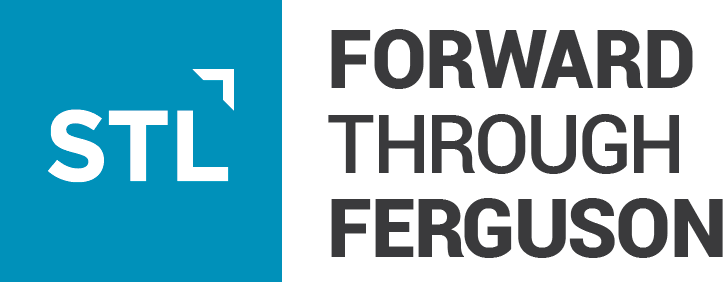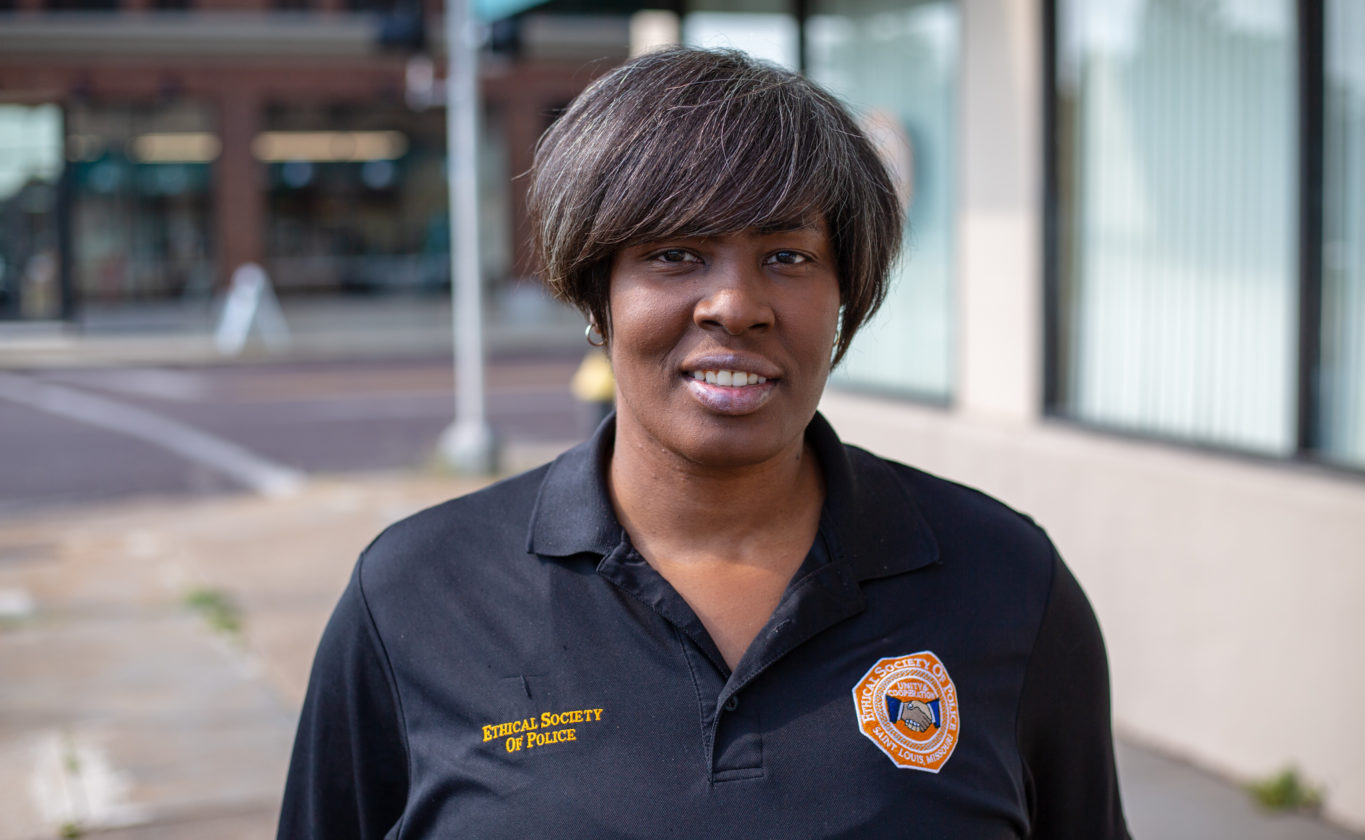In light of the recent release of the State of Police Reform, we’re sharing some officer’s stories related to police reform in our region. These stories are part of the #FiveYearsLater #STL2039 series with Humans of St. Louis.
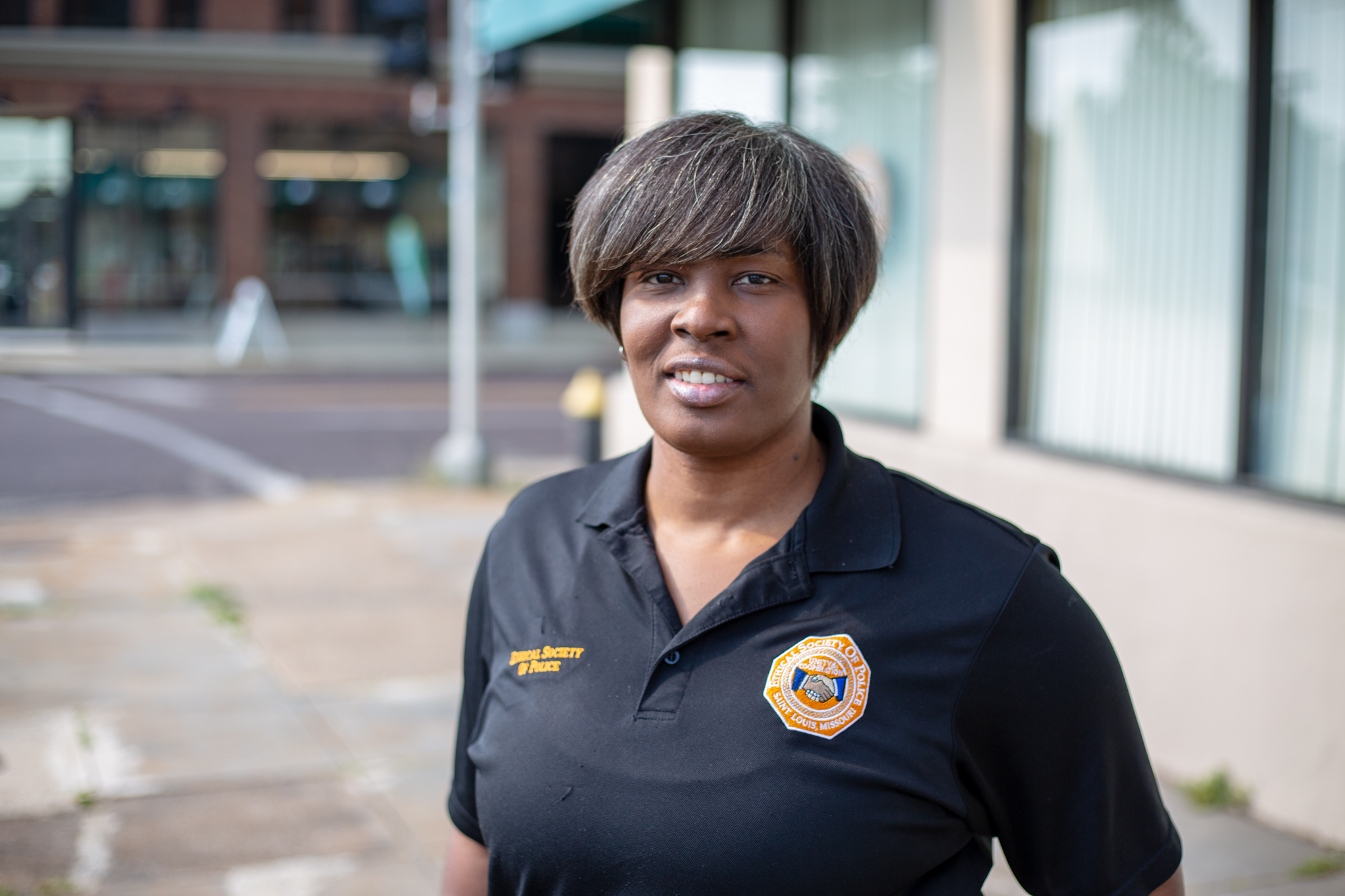
Heather Taylor, Photostory by Colleen O’Connell Smyth/Humans of St. Louis
My whole career, the St. Louis Police Officers Association had something called ‘Cop Talk.’ It was a message board where officers would log on and say whatever they felt. Most of them would hide their names. I remember going on there and seeing officers call people monkeys, coons, and argue about nooses being hung in the police department. After Mike Brown was killed, it disappeared. They got a lot of heat for it. But you still have other Facebook groups, like the one with Border Patrol, and the stuff they say is horrible. Sometimes cops are the most racist and sexist people. How do they become police officers?
We have to implement implicit bias training before they become officers so we can see if this person has any business being a police officer.
We’ve had officers tweet that all Muslims are disgusting, then we turn around and say, ‘We’re going to give them implicit bias training.’ A person made about 30 posts of how he hates Muslims and women. What are you going to train away? You fire him. That’s the only thing that’s going to help. We have to implement implicit bias training before they become officers so we can see if this person has any business being a police officer. And it can’t just be an online module. I want to see you and hear what your issues are about women and Muslims before you put on this belt, gun, and badge and you go out and start arresting people.
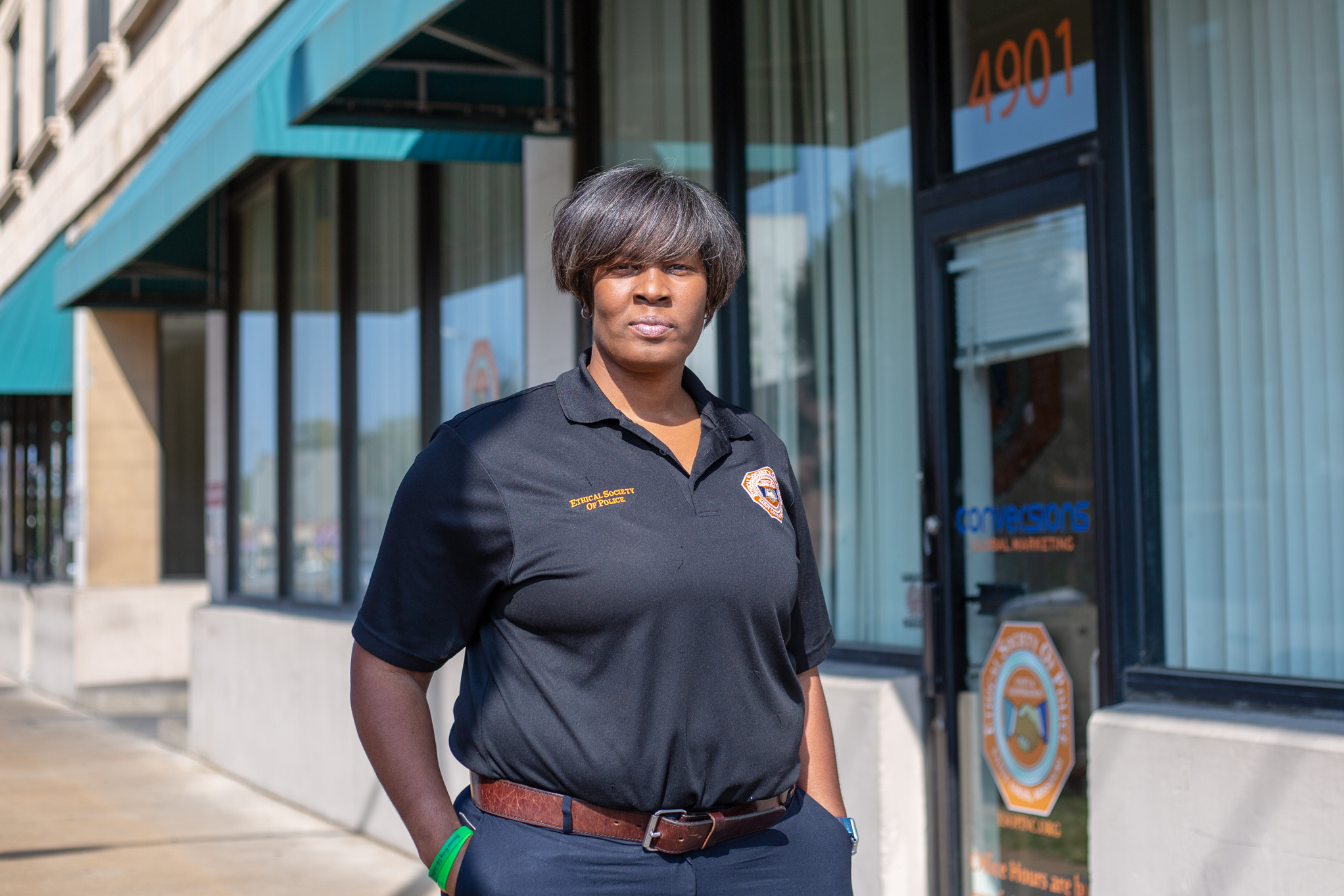
I grew up in this area, so I know it well. There are certain things I do – the way I say something or a look I give – which can be enough. Other times I have to deescalate a situation. There are officers who don’t understand that, so they’re always giving someone ‘the look’ and have a chip on their shoulder. It’s a red flag if someone’s excited about having a gun, a badge, and arresting people. We’re not going to recommend you to become an officer. Sometimes we see people who go out there gung-ho and fall into this blue code. You can teach someone if they are willing, but you’re still going to have officers that become embedded in a culture of silence. When we’re trying to solve cases, it is usually those officers who complain about deaths or crime in the community and say, ‘No one is giving us any information. I’m tired of seeing babies die.’ We’re all tired of seeing babies die. It would be great if our community called things in on a hotline, but it would be great if our officers who saw undercover officer Luther Hall getting beaten in 2017 and who saw protestors and news reporters getting beaten, snitch, too. If that’s what cops are complaining about, do the same. You want to hold the community accountable? We need to hold ourselves equally accountable.
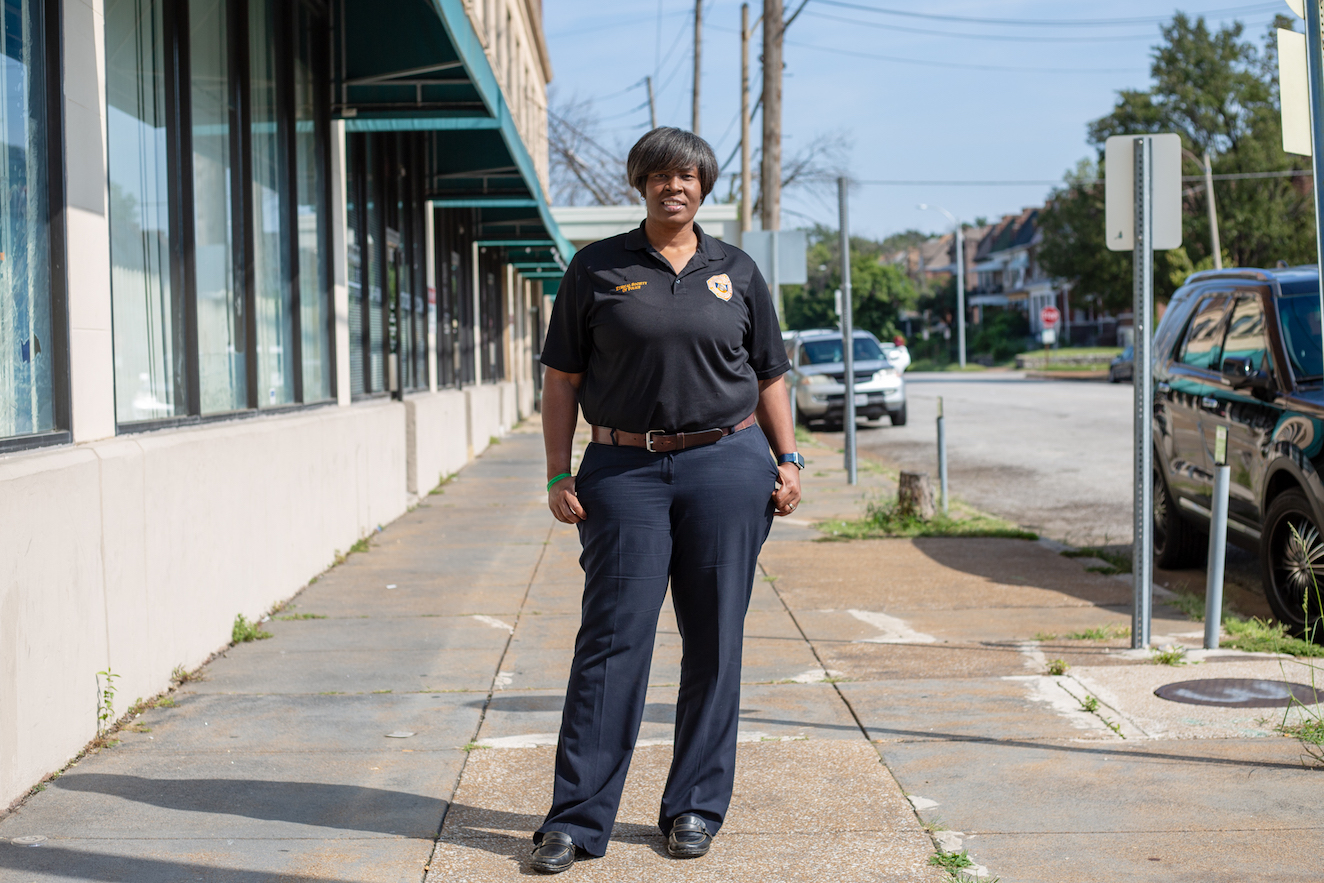
I’ve been in my career for 19 years going on 20, and I don’t see a lot changing with public safety because we have to have policies and progressive people in place for those policies to be implemented. The reality is that the people who have been policed the most are a small percentage of the community. Yet Black people make up a large percentage of those who are populating jails and prisons. Locking people up and being so-called ‘tough on crime’ has not lowered crime. It’s made it worse. We’ve had the same racial profiling laws for decades. We have the old system and old people that are leading the charge. Until you have people who are really about equity, who understand that we can’t lock our way out of this mess that we’ve made, we won’t move forward.
We’re working on expanding the Ethical Society of Police in St. Louis. We want to establish chapters and charters outside of the City, and there is a tremendous need all around the country. It’s my way of working toward a culture shift from the inside.
As long as I’m alive and I have the ability to help, I will. That’s why we’re working on expanding the Ethical Society of Police in St. Louis. We want to establish chapters and charters outside of the City, and there is a tremendous need all around the country. It’s my way of working toward a culture shift from the inside. After I retire, I’m going to take a year off and then apply to law school. My end game is to work for the Innocence Project, assisting with my investigative and legal experience. I’ve had forks in the road where I’ve thought of quitting, but I think of the example my dad set. He got up at 4 a.m. each day and came home late at night. He worked long hours on his feet as a chef for 30 years. If he can do it and be resilient in the conditions he experienced, I can do it, too.
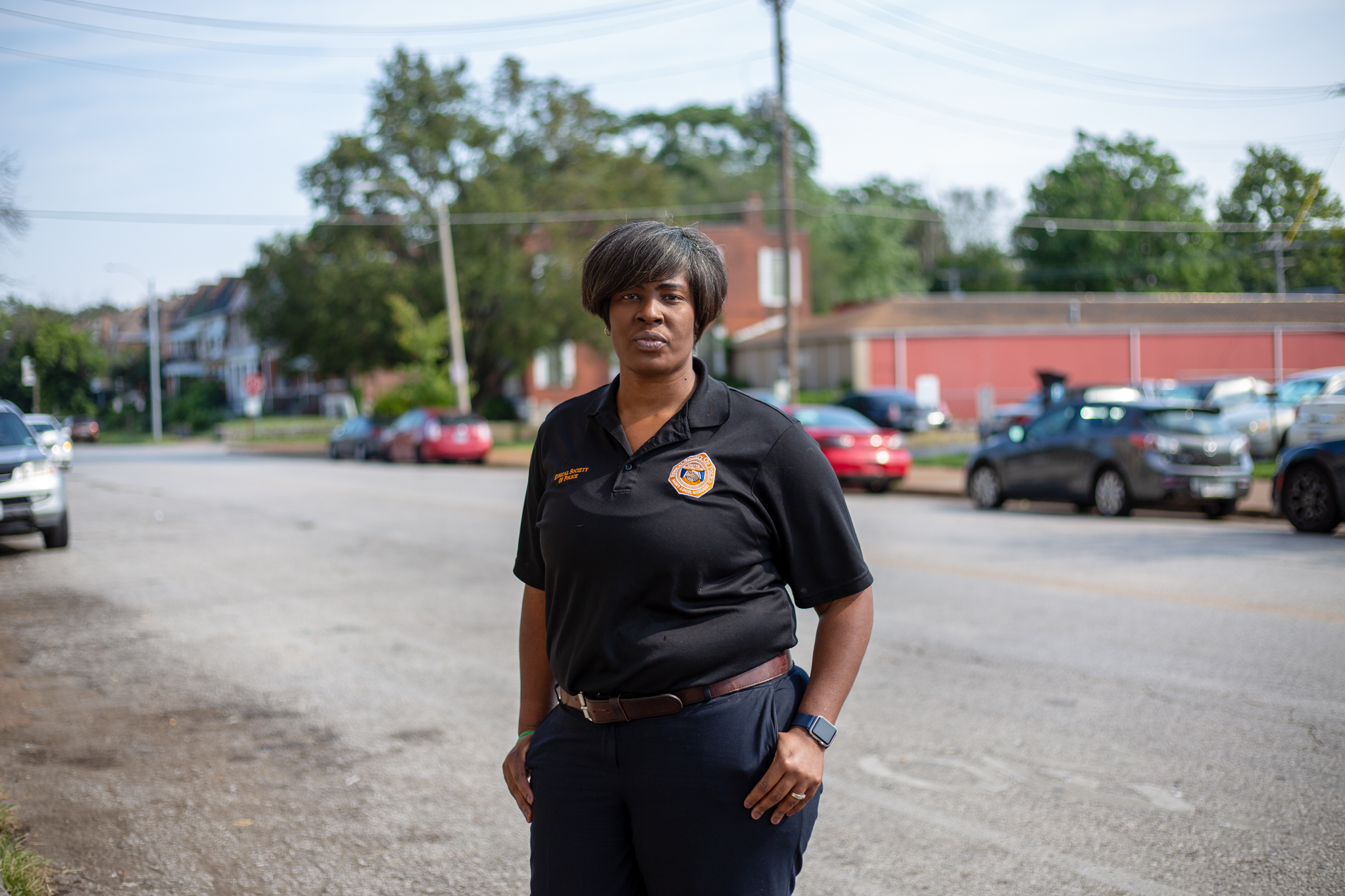
The number one killer of officers is suicide. We say, ‘Let’s just screen them one time and then for 20 years let them see children who are shot, sexually assaulted, and die in their hands or on operating tables.’ Then we expect that officer to not do something that’s going to upset the public. Maybe we could flag or help some of them before they hurt someone for no reason. In 2039, I’d like to see a process in place where police officers are being psychologically tested more than once in their entire career.
In 2039, I’d like to see a process in place where police officers are being psychologically tested more than once in their entire career.
The only time they test is at the beginning and if you have an officer-involved shooting. You’re asking officers to see some of the most horrific things you could ever imagine. There’s a stigma in law enforcement around mental health. And you don’t want to be seen as weak and needing to reach out to seek resources. I grew up in North St. Louis during the crack epidemic, and I’ve seen more trauma now then I saw then.
I’d like to see all sectors of public safety including judges and police officers look like the communities that they’re sentencing and policing. More police departments need to invest time evaluating applicants for their biases before we hire them. You get them now, or you get a lawsuit or someone murdered later. Twenty years from now, I want defense attorneys to receive funding and not have caseloads of 40 people at a time. I want to Close the Workhouse and a facility that has a holistic approach to substance abuse and mental illness in its place. I want facilities for drug recovery where people can actually go, instead of locking them up, and for us to truly care about recidivism instead of putting people away so we don’t have to deal with them. I would like to see housing in the community for our unhoused, doing away with some of the archaic processes, and wasting money on things that are just not viable things to do. And the last thing we need to do with public safety is change what happens when officers get fired so they don’t just go from one municipality to the next.
